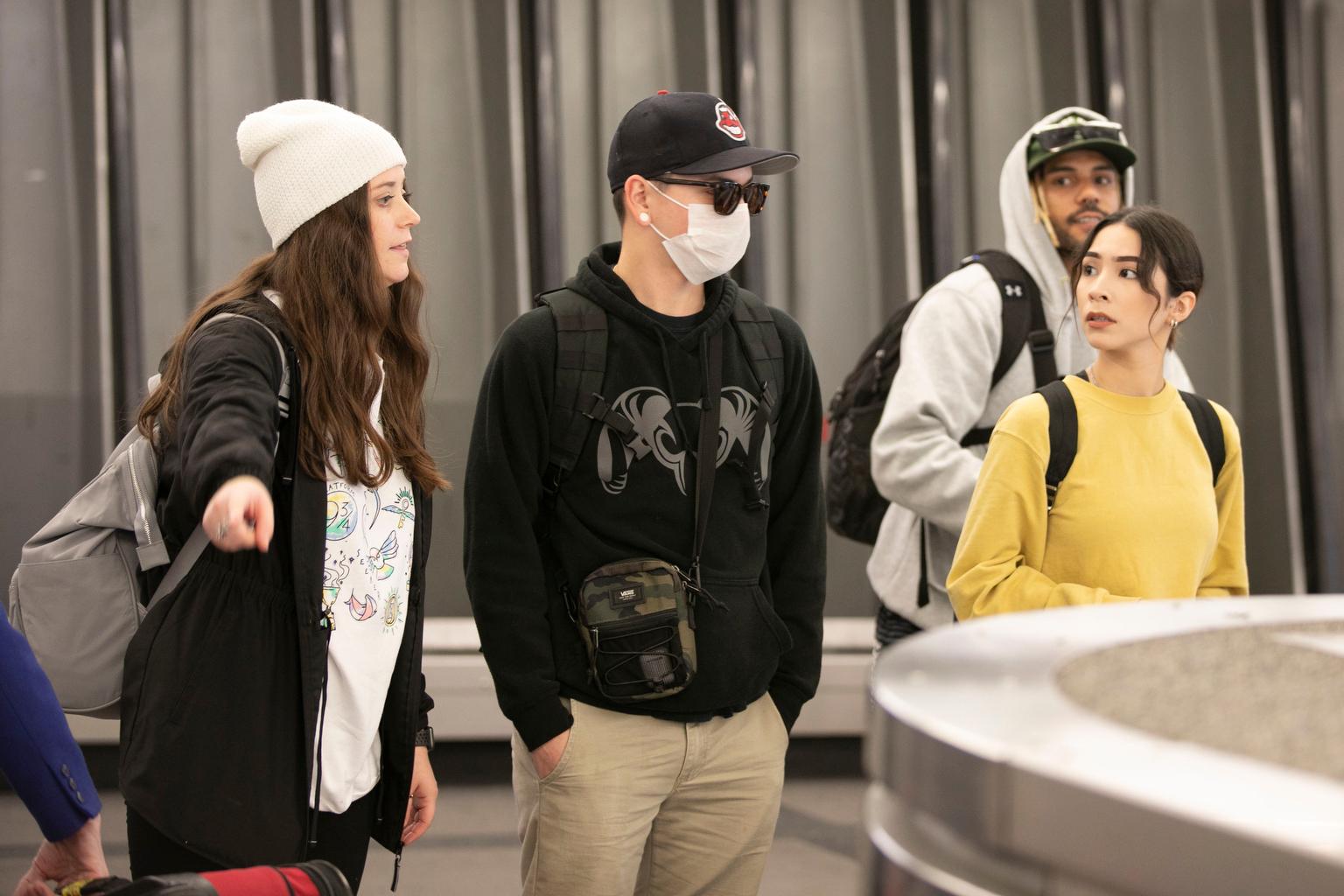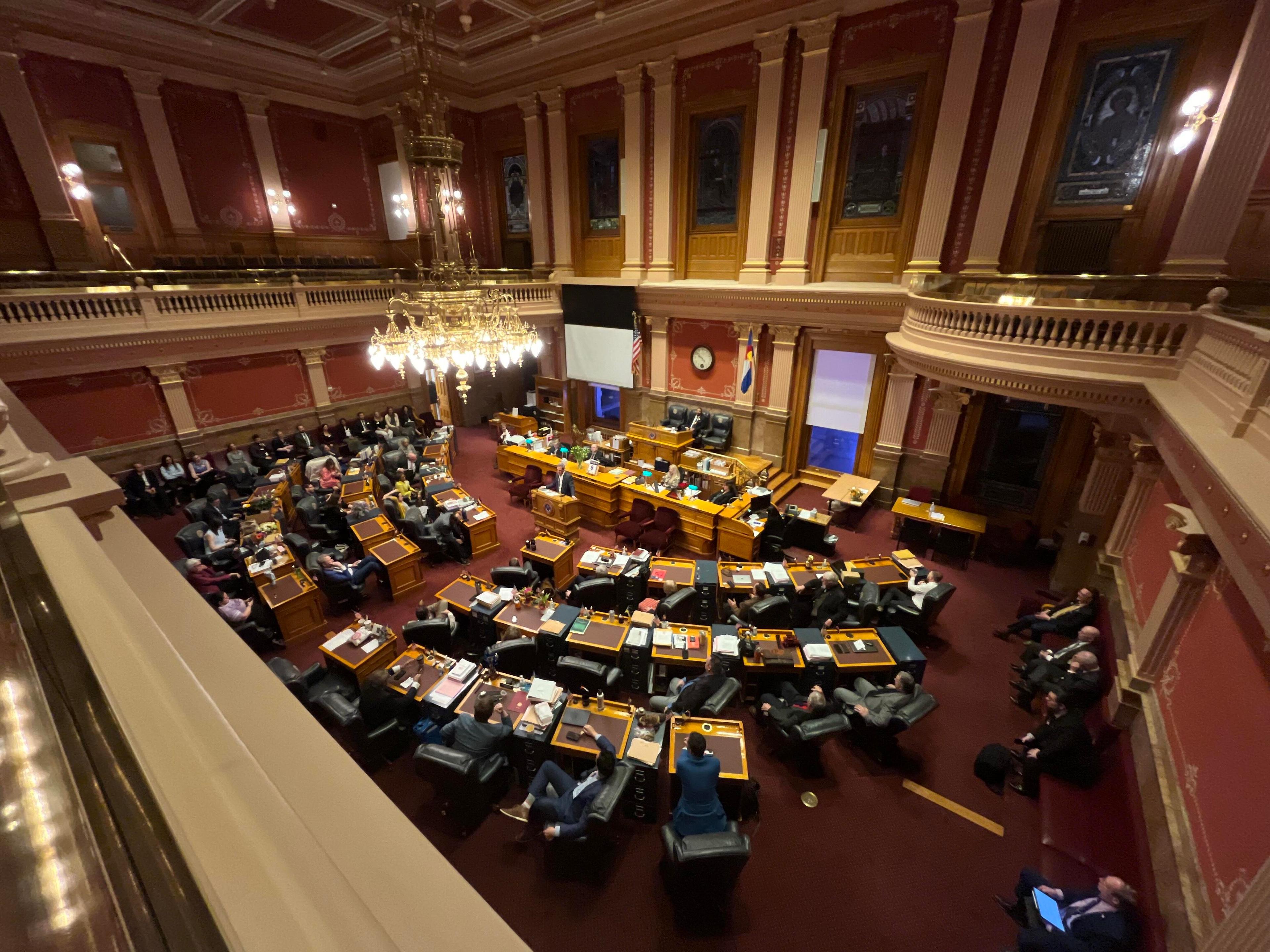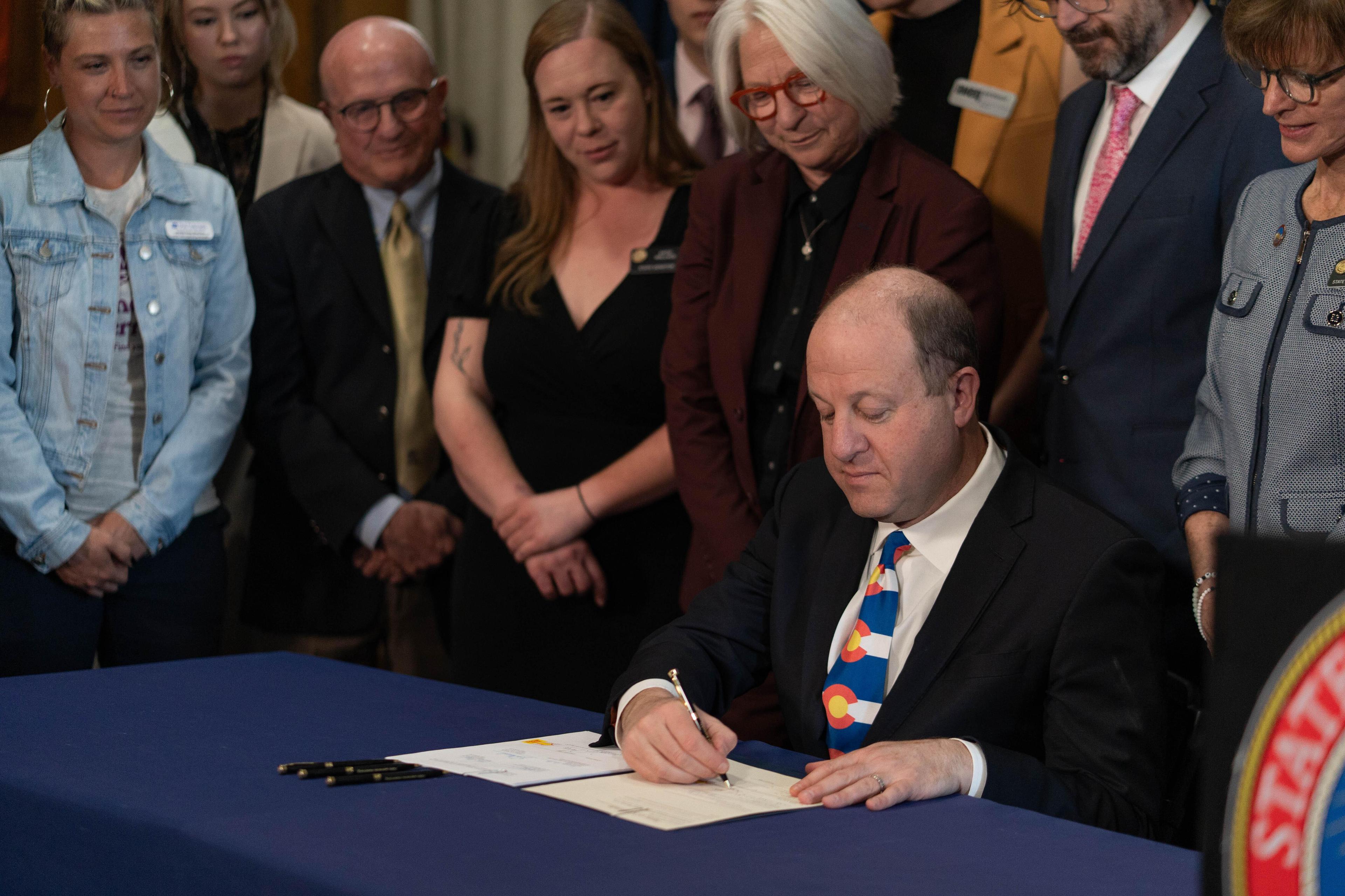
State economists say Colorado should prepare for a temporary economic decline as COVID-19 is expected to paralyze businesses, shred paychecks and trap people at home for weeks or months. That was the central message of the quarterly economic forecast that government staff delivered to the powerful joint budget committee on Monday afternoon.
"We’re now expecting a short-term contraction in economic activity," said Kate Watkins, chief economist for the Colorado legislature. Her office predicts the greatest impacts will be felt over the next four months.
The new forecast dramatically changes the state’s fiscal outlook. It shows that Colorado’s revenue may slightly shrink in the current fiscal year, compared to the previous one.
And for the fiscal year beginning July 1, revenue may grow by just 1.4 percent — a sharp drop from predictions of 4 percent growth.
“We know this is an inflection point. We can feel the trajectory of the economy changing in real time,” said legislative economist Larson Silbaugh. But the question was how far and how deep the dip would extend.
The forecast slashes projected revenues for the next fiscal year, beginning July 1, by about $750 million. A nearly flat budget poses a major challenge to Democrats’ hopes of passing new laws and creating new programs.
“I would say it feels like the rug got pulled out from under us,” said Democratic Sen. Dominick Moreno, the vice chair of the Joint Budget Committee. He said the state would need to focus on critical priorities, and there may not even be enough money to pay for mandated increases in K-12 schools tied to inflation.
“We're going to have to take a really long and hard look at exactly what we have to deal with in this budget, and any new ideas or new programs are probably going to be the first things that we're going to have to set aside and really dig in to see what it is we have left to complete.”
A similar forecast from Gov. Jared Polis' administration was only slightly more optimistic, while still projecting cuts. Both groups said that the outlook remains highly uncertain since most economic indicators haven't fully captured the downturn. The odds of a recession are increasing, according to Polis' Office of State Planning and Budgeting.
Read more: What are employers doing if they think a worker has been exposed?
"I would call the economic situation in complete flux, and until we have a much better idea what’s going on I wouldn’t put much stock in any economic forecast, although we know the news isn’t good,” Polis said in a written release. His top priority is protecting Coloradans' health, he said, while minimizing the long-term economic effects of the pandemic.
Economists attributed most of the changes to slowdowns and shutdowns in major sectors of Colorado's economy, part of a global effort to limit the spread of the novel coronavirus.
On Monday, Polis ordered all restaurants and bars to stop serving customers in-house for at least 30 days. Casinos, gyms and other gathering places must also close. Polis also ordered ski resorts to stop spinning their lifts over the weekend. On top of all the lost tax money from those businesses, the state’s revenues will be damaged by a global oil glut, too.
As a result, taxpayers should not expect to receive Taxpayer's Bill of Rights refunds anytime soon.
“With this forecast, (the state is) suggesting there really isn’t any extra money there, and they’re sort of right on the edge in terms of meeting those budgetary commitments,” said Richard Wobbekind, senior economist at the University of Colorado Boulder’s Leeds School of Business.
The shrinking state budget will limit Colorado’s ability to mount a major economic recovery program, he added, though the state has more than $100 million available in emergency funds.
“We’re all going to be relying on the federal government to do a lot of this and transfer money to the state government budgets,” Wobbekind said. Even if it taps its reserves, the state simply doesn’t have much “firepower,” he said, adding: “All of that’s going to be coming down from Washington.”
Still, economist Watkins struck a hopeful note, saying that the state’s economy is fundamentally strong, hopefully allowing it to recover after the coronavirus outbreak passes.
“The silver lining here is our economy is quite resilient and we’re quite innovative,” she said. “The full effects of the outbreak on tax collections and other revenue won’t be evident for months to come,” she added.
Economic damage could continue through the end of the year, Wobbekind said, “and by the spring of 2021 we start to see growth again.” But state staff also warned that the downturn could drag into a longer recession.
State lawmakers may have to look for savings or scale back their ambitions to keep spending balanced. The previous quarterly forecast calculated that the upcoming budget would include about $830 million in new money, about half of which would be refunded to taxpayers. The latest forecast slashes the growth to just $27 million.
Once the legislature resumes its work, Democratic leaders have asked lawmakers to prepare for tough debates on bills, especially those that require state spending.
“We’re going to do the things that we really need to do most. If you want to get your bill passed and you have a fiscal note, you really have to figure out how to pay for it … or how to eliminate it,” said House Speaker KC Becker in an interview last week.
Lawmakers in both parties say the coronavirus has shifted their priorities, and the main focus is getting Colorado back on its feet. JBC members said they hoped it would be a faster recovery than the 2008 recession.
“If this follows the pattern of other viruses that have come along, it will peak and it will fade,” said Republican Sen. Bob Rankin, another JBC committee member. “But then how fast can our tourism economy recover? And again, completely separate: What will oil prices do? So those factors are really difficult to estimate right now.”
U.S. and global stock markets have plunged amid the developing crisis. The S&P 500 was down about 9 percent midway through Monday, despite news that the Federal Reserve would buy government debt and cut interest rates to near zero.








